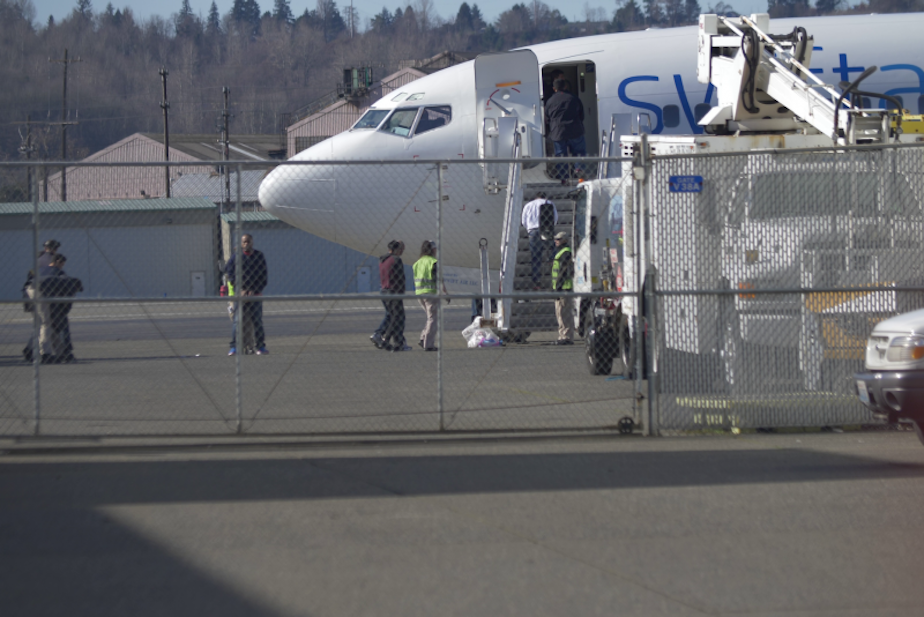3 ways Boeing Field is preventing ‘ICE Air’ from deporting immigrants

Every month several flights leave Boeing Field with detained migrants. Now King County Executive Dow Constantine has issued an order to ban those deportation flights.
King County, home to Seattle, is believed to be the first county in the nation to ban deportation flights.
Here’s what the order does, and what it doesn't do.
1.
It changes lease arrangements.
By changing the language of the leases, Boeing Field effectively tapers off the number of flights U.S. Immigration and Customs Enforcement can operate at the airport. Some of those leases are up at the end of 2019, others are several years out.
While Boeing Field itself doesn’t have contracts with ICE, subcontractors do.
These flights, known colloquially as "ICE Air," turn provider hangar space and other services to ICE when they fly in detainees to the Northwest Detention Center or deport them back to their countries of origin. Those new leases will comply with local immigration and human rights regulations.
“We are a welcoming community that respects the rights of all people,” said King County Executive Dow Constantine in a press release. “My executive order seeks to make sure all those do business with King County uphold the same values.”
About 34,400 immigrants have been deported from Boeing Field since 2010, according to research by the Center of Human Rights at the University of Washington. That averages to 360 immigrants flown out per month.
Read the University of Washington report here.
2.
It doesn’t end flights or ban them outright.
The order does not end flights chartered by ICE outright.
John Parrott, director of Boeing Field, explained: “We’re not saying these flights cannot come in; we’re saying those that have agreements with us must abide by certain standards.”
King County International Airport doesn’t have the ability to inspect passengers or cargo on board planes. ICE doesn’t even have to share flight plans with the airport.
Based on the call signs that flights use, Parrot believes anywhere from 6 to 8 flights connected with ICE enter and depart from Boeing Field every month.
It’s a tricky distinction but still a move celebrated by immigration advocates like the Northwest Immigrant Rights Project, the American Civil Liberties Union, and Colectiva Legal del Pueblo.
Sponsored
3.
Increases transparency through cameras & audits
The county also called for stricter audits and airport cameras to monitor how detainees are treated.
“It will be difficult to measure immediately but we will review and be able to share the information we have,” Parrott said.
The cameras will be on public ramps and locations around the Boeing Field. It can also let airport officials know if and when ICE flights are leaving or arriving.
While officials expect they might get push back, they said they are prepared for any legal challenges.
In an emailed statement sent Thursday, U.S. Immigration and Customs Enforcement officials said, "ICE removes thousands of aliens each year, and does so humanely and in full compliance with domestic law and U.S. treaty obligations. To suggest that the enforcement of federal immigration laws is somehow a human rights violation is irresponsible and reflects either a profound misunderstanding or willful mischaracterization of those laws...
It’s unfortunate to see yet another example of local policymaking aimed at intimidating ICE and our partners.”
Updated 1: 08 PM Friday 4/26
This story has been updated to include a statement from U.S. Immigration and Customs Enforcement officials.




